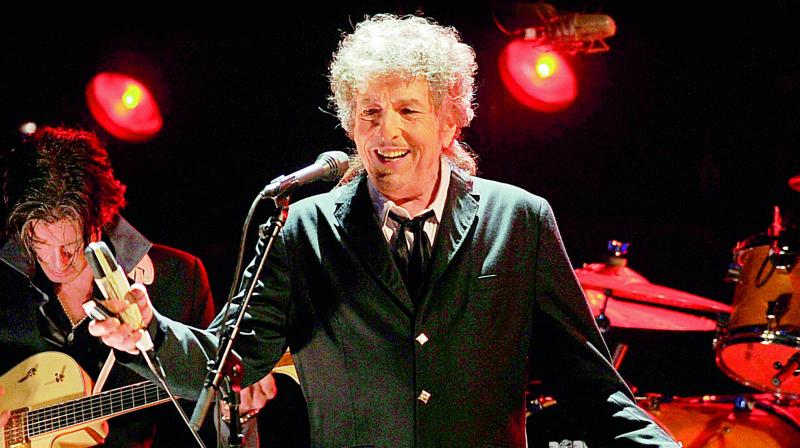Modern day bard
Bob Dylan is a contemporary bard whose music imparts crucial messages and they will remain relevant for time to come

Bob Dylan has won the Nobel Prize for literature not because he is a musician but because he is a storyteller. He has won the prize for his vision, for his language and for his unique style which has affected millions around the world. In the tradition of the most well-known bards of our time — of the Greeks — Homer and Sappho, of Shakespeare, and of Tagore, Dylan is a modern day bard and he has brought together story-telling, music and poetry in the most creative and poignant of ways. He has established himself as an icon of this century, reshaping culture and politics in the 1960’s. He is a contemporary bard whose music imparts crucial messages — has and will remain relevant for time to come.
Dylan winning the Nobel Prize points out the importance of the Bardic tradition in what we define as literature. From time immemorial some of the greatest storytellers in both eastern and western cultures have been bards. The reason for this is understandable — in the days before the printing press (only about 575 years ago) when mankind had no access to books, it was the bards who carried forth stories in the form of music, so that they could be remembered. In India too, our great epics — the Ramayana, the Mahabharata were performed and recited — take the example of the Ramleela for example.
World over, poetry in its traditional form is dying — not just the consumption of it, but also the writing of it. Most publishers only publish a few books of poetry a year, that mostly to honour the art, because there is hardly any profit in publishing poetry. By honouring Dylan as a modern day bard, the world’s highest authority in literature is acknowledging that poetry as we traditionally know it, is changing forms — rock ‘n’ roll can be poetry, rap can be poetry, hymns can be poetry — and that is perfectly acceptable.
India has a rich history of bardic tradition. Bards or “sutas” as they were called in ancient times, narrated events of heroes in the form of ballads. Tracing back to the Vedas, the oral tradition of yogis and fakirs is highlighted in the Atharva Veda and the rendering of the greatest texts of Indian literature, the Mahabharata, the Ramayana and even the Holy Gita are all examples of the bardic tradition at its best. In India, the bardic tradition has been closely associated with, and carried forth by, religion and from the Charana bard community of Banaras, to the Malas of south India to the Koothars of India, who claim to be the direct descendants of the ‘sutas’ — the tradition has lived on for thousands of years.
By conferring the prize on Dylan, the Swedish Academy is also helping bridge the dichotomy between what one may regard as “literary” and more commercial forms of art. The reality is that in 2016, the way we are consuming “literature” is distinctly different than it was 100 years ago and before that. I am a voracious consumer of literature both modern and ancient. While I enjoy poetry and greatly admire the works of poets like Emerson and Faiz, the reality is that I connect more to the lyrics of Dylan or for that matter Adele. To me their words, presented in music, are significant and transporting — and that is what the greatest storyies do — they transport us, touch us, connect us to something larger than ourselves.
One can look at other mediums in the same light. Take for example, film and television. These days some of the finest dialogues and story telling is happening on television, which was, till not so long ago considered the ‘idiot box’. The Swedish Academy’s decision recognises a generation shift and could open the floodgates to literature and in this way democratise the field. One does not have to appear in text books or on school and college reading lists to be a literary giant (though there is a class in Harvard taught on Bob Dylan) and I do hope that Dylan’s win helps bridge the gap and snobbery between literary and commercial.
As a writer who does both commercial and literary work, and someone who has been a victim of literary snobbery, I strongly feel that writing should not be be given labels. A writer is an artist capable of producing a wide array of work in various categories, and Dylan is a stellar example of this. Today literature should mean great story-telling, and that doesn’t have to stay restricted to books. It can extend to journalism, perhaps even to television and film, and certainly to music. At the end of the day, great story-telling is simply great story-telling, even if the way we consume it is different.
Ira Trivedi is an author and yogini

